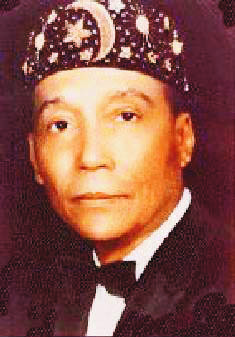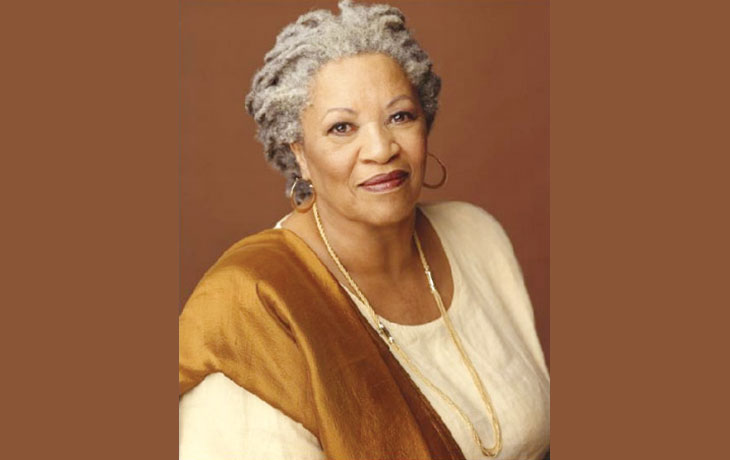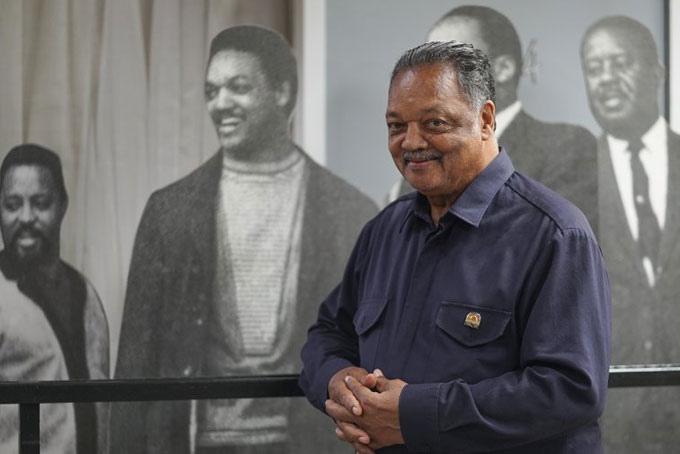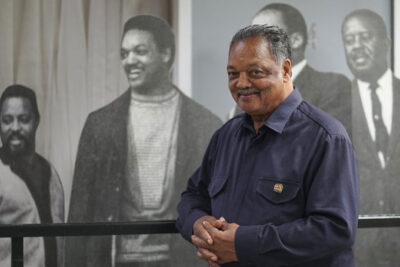This Week In Black History October 4-10, 2023
1864—What was to become the nation’s first Black daily newspaper began publishing on this day in New Orleans, La. Amazingly, the New Orleans Tribune began distribution while slavery still existed. It was founded by Dr. Louis C. Reudanez. It began as a tri-weekly but soon became a daily published in both French and English.
1969—Howard Lee and Charles Evers became the first Black mayors of Chapel Hill, N.C., and Fayette, Miss., respectively. Evers was the brother of civil rights legend Medgar Evers who was murdered by Ku Klux Klan member Byron De La Beckwith on June 12, 1963.
1988—The Martin Luther King Jr. federal building is dedicated in Atlanta, Ga. It thus became the first federal building to bear the name of the slain civil rights leader.
1867—The first Black mayor of any American city takes office. His name was Monroe Baker. The prominent businessman was appointed mayor of St. Martin, La., two years after the end of slavery.
1847—The first National Black Convention takes place in Troy, N.Y. There were more than 100 delegates in attendance from at least nine states. Top items on the agenda included determining ways to help end slavery and encouraging free Blacks to refuse to purchase products produced by slave labor. Frederick Douglass frequently makes note of the convention because one of its aims was to organize independent Black power and “not depend on Whites and hope” to free Blacks.
1871—The now world famous Fisk Jubilee Singers begin their first national tour. The tours helped raise funds for Nashville, Tenn.’s, predominately Black Fisk University as well as give the school an international reputation.
1917—Activist Fannie Lou Hamer is born in Montgomery County, Miss. She goes on to become one of the major female figures in the Civil Rights Movement of the 1960s. Nevertheless, she remains one of the movement’s most effective unsung heroes. As to why she became involved in the movement for Black freedom, dignity and political rights, she would often say in reference to injustice, “I’m sick and tired of being sick and tired.”
1971—The first legal interracial marriage takes place in North Carolina. A Black man, John Wilkinson, marries a White woman, Lorraine Mary Turner. The marriage came a few years after the 1967 U.S. Supreme Court ruling in Loving v. Virginia, that ruled legal barriers to interracial marriage, which existed in most Southern states, were unconstitutional.
1821—One of the most prominent Blacks in the Underground Railroad, William Still, is born near Bedford, Mass. The “Underground Railroad” was the name given to a series of secret trails and safe houses used to help Blacks escape from slavery in the South to freedom in the North.

1897—The founder of the Nation of Islam Elijah Muhammad is born Elijah Poole in Sandersville, Ga., as one of 13 children. Muhammad would build his religious sect into the largest independent Black separatist organization in America. The group is currently headed by Min. Louis Farrakhan. Muhammad died in February 1975.

1934—Activist, writer and poet Imamu Baraka is born Everett LeRoi Jones in Newark, N.J. Baraka was one of the leading intellectual figures in the Black Power and Black Nationalist movements of the 1960s and early 1970s. A special tribute honoring Baraka’s 75th birthday took place around this time last year.
1967—Carl Stokes is elected the first Black mayor of a major American city—Cleveland, Ohio. Interestingly, he won by defeating Seth Taft—the grandson of a former United States president—Howard Taft.

1993—Writer Toni Morrison is awarded the Nobel Prize in Literature.
1775—Slaves and free Blacks are officially barred by the Council of Officers from joining the Continental army to help fight for American independence from England. Nevertheless, a significant number of Blacks had already become involved in the fight and would distinguish themselves in battle. Additional Blacks were barred out of fear, especially in the South, that they would demand freedom for themselves if White America became free from Britain.

This July 5, 2018 photo shows the Rev. Jesse Jackson in Chicago. (AP Photo/Teresa Crawford)
1941—National Black political leader and two-time candidate for president of the United States Rev. Jesse Jackson was born on this day in Greenville, S.C. After the 1968 assassination of Civil Rights Movement icon Dr. Martin Luther King Jr., Jackson, who was one of his top aides, would become the nation’s most prominent and influential civil rights leader.
1806—Benjamin Banneker dies in Ellicott Mills, Md., at age 74. Banneker was a brilliant mathematician with a great memory and is credited with completing the layout and design of Washington, D.C.
1823—Mary Ann Shad is born. She becomes publisher of Canada’s first anti-slavery newspaper—The Provincial Freeman. In fact, she is the first woman in the U.S. or Canada to edit and publish a newspaper.
1962—The east African nation of Uganda becomes independent from British rule.
1984—W. Wilson Goode makes history by becoming the first Black mayor of Philadelphia, Pa.

2009—In a move which surprised just about everyone, President Barack Obama is awarded the Nobel Peace Prize. Obama had been in office for less than 9 months at this time last year but the Nobel Committee in Oslo, Norway, said it was impressed by his “promise” of disarmament and diplomacy.
1778—What is believed to be the first formal school for Blacks—the Africa Free School—opens in New York City.
1899—Black inventor Isaac Johnson patents the bicycle frame.
1901—Frederick Douglass Patterson is born. He grows up to become President of Fisk University in Nashville, Tenn. From there he would later launch an effort that leads to the 1944 founding of the United Negro College Fund.
1917—Famed Jazz pianist Theolonius Monk is born in Rocky Mount, N.C.

SIDNEY POITIER and DOROTHY DANDRIDGE in ‘PORGY AND BESS’
1935—George Gershwin’s “Porgy and Bess,” a Black spiritual opera, premiers on Broadway in New York City. It starred Todd Duncan from Howard University. The play becomes one of the most popular Black-themed shows ever to hit Broadway. The 1959 movie version stars Sidney Portier and Dorothy Dandridge.

